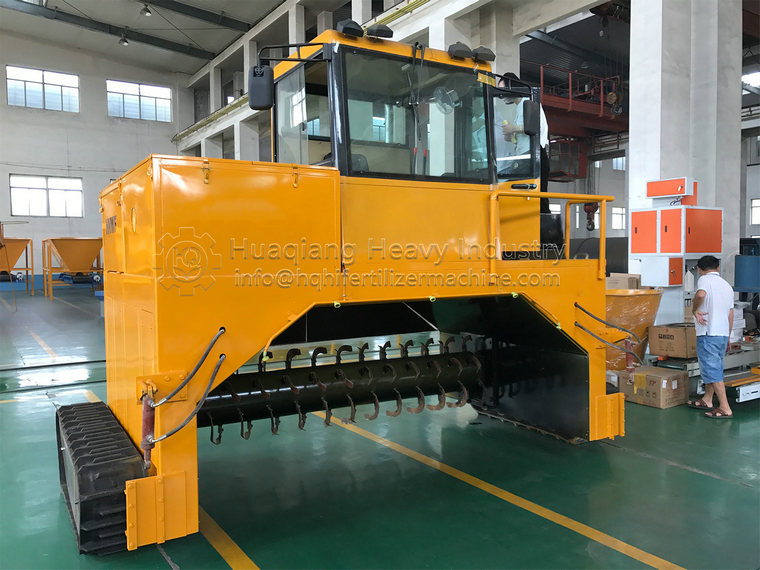In order to ensure fermentation efficiency, product quality, and operational safety during the fermentation process using a mobile dump truck, the following key points need to be noted:
Raw material pretreatment: Before fermentation, raw materials (such as livestock manure, crop straw, etc.) need to undergo appropriate pretreatment, including crushing and mixing, to ensure the uniformity and appropriate particle size of the raw materials. The moisture content of the raw materials should also be controlled within an appropriate range (usually 50% -60%), as excessive or insufficient moisture can affect the fermentation effect.
Fermentation heap construction: The size and shape of the heap should be designed according to the specifications of the mobile tipping truck and the characteristics of the raw materials to ensure the efficiency of the tipping operation. The stack should not be too high or too wide to avoid insufficient oxygen or high temperature in the central part.
Controlling fermentation temperature: During the fermentation process, controlling the temperature of the heap is crucial. Excessive temperature (over 70 ° C) may kill beneficial microorganisms and reduce fermentation efficiency; If the temperature is too low, fermentation will be slow. When using a mobile forklift, the flipping operation should be carried out in a timely manner according to the temperature changes of the stack to adjust the temperature.
Timely flipping: The flipping operation should be carried out in a timely manner according to the temperature of the pile, the characteristics of the raw materials, and the fermentation process. Flipping too early or too late can affect the fermentation effect. Usually, when the temperature at the center of the pile reaches 55-65 ° C and is maintained for a period of time, flipping should be carried out.
Monitoring fermentation parameters: During the fermentation process, key parameters such as temperature, humidity, and oxygen content of the heap should be regularly monitored to ensure the controllability of the fermentation process and product quality.
Avoiding secondary pollution: During the flipping and fermentation process, measures should be taken to prevent secondary pollution, such as controlling dust, reducing odors, and avoiding the spread of harmful microorganisms.
Safe operation: When operating a mobile dump truck, safety operating procedures should be followed to ensure the safety of operators, such as wearing appropriate protective equipment to avoid equipment running on unstable or unsuitable ground.
Fermentation cycle and maturity assessment: The length of the fermentation cycle should be determined based on the characteristics of the raw materials and the fermentation effect. After fermentation is completed, the maturity of the compost product should be determined by testing its temperature, organic matter content, pH value, and other indicators to ensure the quality of the organic fertilizer.
Post processing and storage: After fermentation, organic fertilizer products need to undergo further processing, such as screening, crushing, drying, etc., to adjust their particle size and moisture content, and then be appropriately packaged and stored to maintain their fertilizer efficiency and stability.
By paying attention to these matters, it is possible to ensure that the mobile dump truck performs at its best during the fermentation process, improving fermentation efficiency and the quality of organic fertilizer products, while ensuring operational safety and environmental protection.